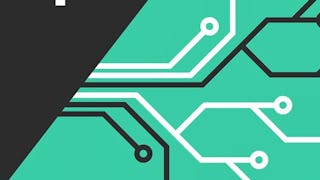Unlock the power of algorithms and data structures with this comprehensive course. Begin your journey by mastering essential concepts such as Big O notation, space complexity, and recursion. Through clear explanations and practical examples, you'll learn to analyze algorithm efficiency and optimize solutions for real-world challenges.

Ends tomorrow. Heat up your career with 40% off courses from Adobe, IBM, and more. Save now.


Foundations of Data Structures and Algorithm Analysis
This course is part of Data Structures and Algorithms: The Complete Masterclass Specialization

Instructor: Packt - Course Instructors
Included with 
Recommended experience
Recommended experience
What you'll learn
Master Big O notation to analyze time and space complexity effectively
Implement and optimize key data structures like trees, heaps, and tries
Solve real-world problems using advanced sorting and searching algorithms
Build a strong foundation for technical interviews with hands-on coding
Skills you'll gain
Details to know

Add to your LinkedIn profile
January 2025
13 assignments
See how employees at top companies are mastering in-demand skills

Build your subject-matter expertise
- Learn new concepts from industry experts
- Gain a foundational understanding of a subject or tool
- Develop job-relevant skills with hands-on projects
- Earn a shareable career certificate

There are 12 modules in this course
In this module, we will provide an overview of the course and its curriculum. You'll learn about the breadth of topics covered, from foundational concepts to advanced implementations in Python. This section sets the stage for your journey into data structures and algorithms, emphasizing their role in technical problem-solving and interviews.
What's included
2 videos2 readings1 assignment
In this module, we will delve into the fundamentals of Big O notation, a critical tool for analyzing algorithm efficiency. Through detailed explanations and examples, you'll explore various complexities, learn to count operations, and simplify Big O expressions. By the end of this section, you’ll also gain insights into space complexity and its impact on data structure design.
What's included
13 videos1 assignment1 plugin
In this module, we will examine key concepts like memory and logarithms, which underpin many data structures and algorithms. These essential ideas will help you develop an intuitive understanding of how data structures work and how logarithmic operations play a role in optimizing performance.
What's included
2 videos1 assignment1 plugin
In this module, we will introduce the concept of data structures, exploring their significance in programming and problem-solving. You'll gain a broad understanding of how data structures are used to store, organize, and manipulate data in diverse computational scenarios.
What's included
1 video1 assignment1 plugin
In this module, we will focus on arrays, one of the simplest yet most versatile data structure. You'll learn how to perform essential operations, from accessing elements to dynamic resizing. This section also explores static versus dynamic arrays, equipping you with the knowledge to choose the right type for different tasks.
What's included
4 videos1 assignment1 plugin
In this module, we will dive into linked lists, a dynamic data structure that allows efficient insertion and deletion. From singly to doubly and circular linked lists, you'll explore their implementation and complexities, learning to use them effectively in diverse programming scenarios.
What's included
4 videos1 assignment1 plugin
In this module, we will introduce stacks and queues, foundational data structures with unique properties. You'll learn to implement and use these structures in real-world scenarios, such as managing task sequences and solving computational problems.
What's included
1 video1 assignment1 plugin
In this module, we will explore hash tables, a powerful data structure for fast data retrieval. You'll understand the concept of hashing, handle collisions, and implement hash table operations to enhance your algorithmic efficiency.
What's included
1 video1 assignment1 plugin
In this module, we will explore trees, a fundamental nonlinear data structure. From binary trees to advanced AVL and Red Black trees, you’ll gain insights into their structure, traversal methods, and applications in organizing hierarchical data.
What's included
5 videos1 assignment1 plugin
In this module, we will cover heaps, a specialized data structure for managing priority. You'll learn to implement heap operations, create priority queues, and use heap sort for efficient data sorting.
What's included
2 videos1 assignment1 plugin
In this module, we will explore tries, a unique data structure for storing strings. You'll learn how to build and manipulate tries while understanding their practical uses in optimizing search and retrieval tasks
What's included
3 videos1 assignment1 plugin
In this module, we will introduce graphs, a versatile data structure used to represent networks and relationships. You'll gain a foundational understanding of graph components and learn traversal techniques to apply in real-world scenarios.
What's included
1 video1 reading2 assignments1 plugin
Earn a career certificate
Add this credential to your LinkedIn profile, resume, or CV. Share it on social media and in your performance review.
Instructor

Offered by
Explore more from Algorithms
 Status: Free Trial
Status: Free Trial Status: Free Trial
Status: Free TrialUniversity of Colorado Boulder
 Status: Free Trial
Status: Free Trial
Why people choose Coursera for their career





Open new doors with Coursera Plus
Unlimited access to 10,000+ world-class courses, hands-on projects, and job-ready certificate programs - all included in your subscription
Advance your career with an online degree
Earn a degree from world-class universities - 100% online
Join over 3,400 global companies that choose Coursera for Business
Upskill your employees to excel in the digital economy
Frequently asked questions
Yes, you can preview the first video and view the syllabus before you enroll. You must purchase the course to access content not included in the preview.
If you decide to enroll in the course before the session start date, you will have access to all of the lecture videos and readings for the course. You’ll be able to submit assignments once the session starts.
Once you enroll and your session begins, you will have access to all videos and other resources, including reading items and the course discussion forum. You’ll be able to view and submit practice assessments, and complete required graded assignments to earn a grade and a Course Certificate.
More questions
Financial aid available,


